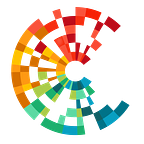MACHINE LEARNING POWERED BY DATA CREATES A DIGITAL AGE OF EXPERIENCE
by Tim Bucher, senior vice president, Consumer Solutions Group, Seagate Technology [client].
We are well into the era of digitizing our physical things — our photos, videos, documents, the world around us. We’re only just beginning to harness the power of that digital data, to create new experiences for people using all that information.
The catalyst, I believe, is machine learning. It’s the baking soda added to the batter of digital information. It makes everything pop!
Machine learning is related to artificial intelligence. One of the first attempts to apply artificial intelligence was applied to the game of chess back in the late 1950s and early 1960s at MIT. The program simply put an algorithm into code and it was groundbreaking in getting people to understand that computers could be smart. The algorithm itself remained static. If its opponent made a move, it ran the algorithm and made its own corresponding move.
Machine learning is different. It actually learns, changing algorithms based on some sort of external stimuli. This makes all the difference when we start using data out in the big broad world.
Take autonomous driving. I’m a fan of using the autopilot feature of my Tesla. It’s an amazing experience to spend the drive looking out the side windows instead of the front! On rare occasions, however, when my car is on autopilot and it approaches a curb in a manner that feels too fast to me, I’m likely to grab the steering wheel or tap the brakes. The system logs that information and uploads it to the cloud. If more vehicles log similar information at that same GPS point, the algorithm directing autopilot through that spot actually changes. Now all vehicles slow down at that point. The “machine” is learning. This is essential for creating a better autonomous driving experience.
In fact, it’s really essential for creating most digital experiences. I have all my photos in Google Photos. The system is looking at those photos and videos all the time, creating movies for me, finding pictures it thinks are sideways, fixing them, and creating wonderful experiences for me every day. It’s starting to recognize me and my children. It’s able to put together cool montages and animations. I have pictures online that go back to 1989 and Google can stitch together multiple pictures across those decades to create panoramas of the same shot. I couldn’t possibly process all the data to do a comparable job myself.
In fact we used to try to do this manually. In the early days at Pandora, the online music service, they would have a room full of people listening to songs and recording scores of parameters of all those songs — effectively a music genome project. The goal of course was to know that if you liked Teenage Dream by Katy Perry, you were also likely to like, say, 24K Magic by Bruno Mars. Now they use computers to extract those parameters. They’re learning.
How big is it? Most of the computing power Netflix needs to run a successful business isn’t to stream all those videos. It’s to make better recommendations.
The inevitable result of all this is that digital information powered by machine learning is changing our culture. Frankly, we don’t fully know where it’s taking us, but you can see the effects through the values of generations younger than me — people who never had a home phone, never had a CD, never really were part of the culture of physical things that I, and everyone before me, grew up in.
Take cars. I used to obsess about what I drove. Lots of kids today don’t give a shit, and if mom or dad can drive them instead, hey great! Everything they want to experience is on demand, through their devices. You can go places without even going anywhere. Whatever you’re curious about, you are free to explore. Virtual reality is only beginning to make this seem genuinely real.
I believe experiences on demand, fueled by pervasive data, and ignited by machine learning, can make us better humans. They challenge our curiosity and our assumptions, and therefore promise to accelerate our own learning and discovery.
